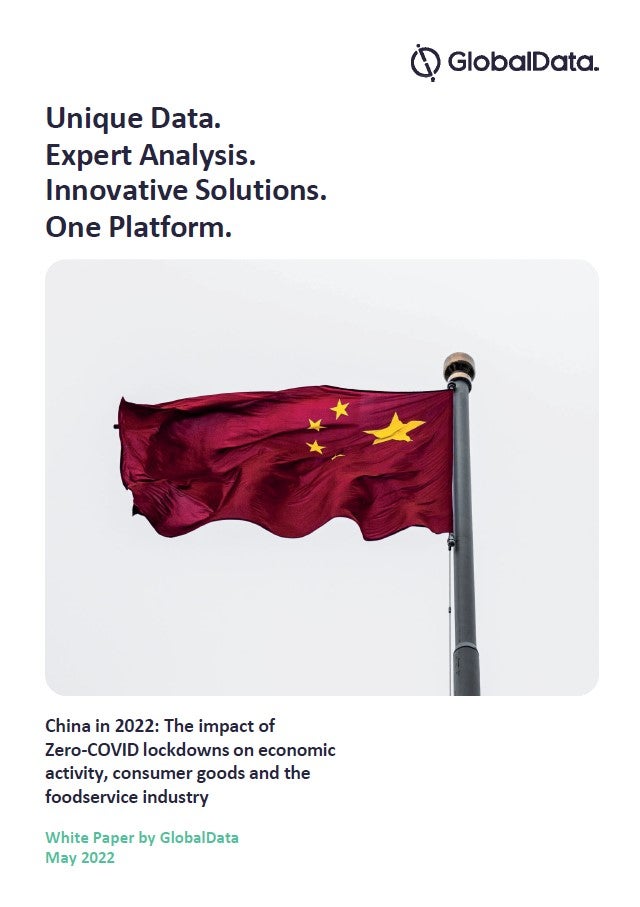
Covid-19 has killed more than one million people globally to date. As this is a global health emergency, it is widely accepted that unless this viral pandemic is controlled everywhere, it remains a threat to everyone.
Vaccines are deemed to be the most efficient way to end this pandemic. As a result, the pharma industry has thrown itself head first into developing vaccines since Covid-19 first emerged in January.
However, as the world moves closer towards having one or more vaccines approved, it is time to ensure these life-saving products are available globally to those who need them, not just to the richer, developed countries that can pay more. There has been significant criticism of some countries – including the US and the UK – about their alleged nationalistic approach to vaccine allocation, rather than focusing on the global nature of this viral disease.
So are the actions of government and businesses helping to ensure those that need the vaccine the most will get the vaccine first? This is what global public health campaign group One wanted to answer through its vaccine access test. It is planning to publish an update every month to see if any changes have been made.
One’s Covid-19 vaccine access test: overview of the findings
The One campaign consulted world-leading experts and determined if leading companies working on Covid-19 vaccines, G20 countries and the European Union are impeding global access, have room for improvement or are advancing equity based on four criteria.
How well do you really know your competitors?
Access the most comprehensive Company Profiles on the market, powered by GlobalData. Save hours of research. Gain competitive edge.

Thank you!
Your download email will arrive shortly
Not ready to buy yet? Download a free sample
We are confident about the unique quality of our Company Profiles. However, we want you to make the most beneficial decision for your business, so we offer a free sample that you can download by submitting the below form
By GlobalDataThese metrics are supporting the World Health Organisation (WHO)’s Access to Covid-19 Tools (ACT) accelerator, their collaboration with others to ensure global access, implementing and promoting polices around equitable access or transparency in terms of knowledge sharing, and, finally, agreeing deals that allocate doses to those most in need and ensuring cost is not a barrier to access.
Unfortunately, the campaign deemed no company, country or region was advancing equity. However, it found that the UK, the European Commission (EC) and three other EU countries – France, Germany and Italy – all had room for improvement. Canada, the US, Brazil, Australia and Russia among others were deemed to be impeding equity with their actions. The Netherlands was the only EU country to be categorised as impeding equity.
In terms of companies, AstraZeneca was the only vaccine developer to be characterised as having room for improvement, while its competitors in the race for a Covid-19 vaccine – Moderna, Johnson and Johnson, GlaxoSmithKline, Novavax, Pfizer, Sanofi, BioNTech and Valneva – were all deemed to be impeding equity.
The One campaign also looked specifically at the deals signed between companies and countries, which have been central to allegations of vaccine nationalism. This was more of mixed bag with some UK and US deals, for instance, being deemed as having room for improvement, while others were considered to be impeding equity. A similar mixed situation was recorded for AstraZeneca.
Covid-19 vaccine access: spotlight on AstraZeneca
AstraZeneca is collaborating on a Covid-19 vaccine with researchers at the University of Oxford. Its adenovirus-based vaccine – AZD1222 – is currently in Phase III trials in up to 30,000 people in many countries across the world. There are hopes that this vaccine might be ready to be considered for approval come January 2021.
Out of a total of 15 points across the four metrics, AstraZeneca scored 8.6 and was therefore classified not as impeding access, but as having room for improvement regarding access.
The One campaign scored AstraZeneca three out of three for its commitment to the ACT accelerator, and two for both transparency and knowledge sharing and multilateral leadership. However, the company only scored 1.6 out of six across its deals with countries.
In its assessment, the campaign stated: “AstraZeneca’s actions so far have proven a dedication to equitable outcomes. AstraZeneca has shown its commitment by collaborating with the ACT accelerator, pledging to market vaccines at no profit during the pandemic, and promoting vaccine access through global engagement with governments and international organisations.”
However, the campaign noted the company could improve its score by “taking a step further than technology transfers by sharing relevant knowledge, intellectual property and data to enable wide-scale production, distribution and use of vaccines, as outlined in the WHO’s Solidarity Call to Action”.
It is clear from the report that the One campaign believes AstraZeneca also has some work to do with regard to its deals with countries. The company has signed 12 deals, two of which are with Brazil, and five of them have been deemed to be impeding equity.
Despite both the EU and AstraZeneca scoring ‘room for improvement’ individually, the deal between them has been recognised as an impediment to equity – it scored zero out of six.
“This deal does little to ensure the initial supply of vaccines isn’t monopolized by the EU,” noted the campaign. In addition, One is concerned that AstraZeneca has not disclosed a breakdown of the pricing for its vaccine or how it arrived at the figure.
Favourable comparisons with competitors
Moderna, which also has a Covid-19 vaccine in Phase III trials and is hoping to submit the product for approval in the next few months, scored only 1.7 out of 15 on the One campaign’s vaccine access test.
The company was awarded zero for the first three criteria. According to the One campaign, this is because it has not supported the ACT accelerator, it has not committed to a non-profit or tiered pricing of its vaccine or sharing relevant knowledge and its executives have not used “political capital” to advance equity globally.
For its three deals with countries, Moderna scored 1.7, which is slightly higher than AstraZeneca. Moderna’s deal with the US scored room for improvement, while its deals with Japan and Canada were deemed to be impeding equity.
Moderna’s deal with the US scored three out of six because it “leaves some flexibility to ensure the initial supply of vaccines isn’t monopolized by the U.S”, according to the campaign. However, One noted that “we will also be watching to ensure subsequent doses aren’t purchased before other countries have secured deals for portions of the initial supply”.
Another pair in Phase III vaccine trials are Pfizer and BioNTech, which were also characterised as impeding equity with regard to access to their jointly-developed vaccine, if it is approved. The One campaign scored Pfizer/BioNTech 2.8 out of 15.
This is because Pfizer and BioNTech have not made any solid commitments to the WHO’s COVAX initiative, the vaccine portion of the ACT accelerator, and have not declared tiered or not-for-profit pricing or sharing of knowledge outside of their partnership.
However, the pair have committed to the Global Access Communique and, therefore, affordability for lower-income countries. Overall, the team has, in the view of the One campaign, “demonstrated partial dedication to equitable outcomes, but has a… long way to go before it is advancing equity”.
Interestingly, representatives of Moderna and BioNTech recently stated at a WIRED Health:Tech event they did not think that companies had a large responsibility in ensuring global access. The One campaign clearly disagrees and argues that “fair global distribution of Covid-19 vaccines will end the pandemic faster for everyone, saving lives and helping economies recover”, reiterating its key refrain that “none of us are safe until all of us are safe”.





